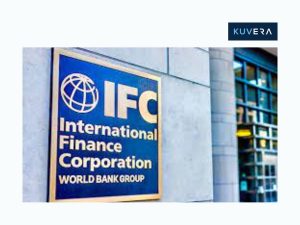What is International Finance Corporation (IFC)?
IFC stands for the International Finance Corporation. It is a member of the World Bank Group and is the largest global development institution focused on the private sector in emerging markets.
IFC was established in 1956 with the mandate to provide financing to the private sector in developing countries. It works to promote sustainable private sector development in these countries by providing financing, advisory services, and technical assistance to support the development of businesses, infrastructure, and other private sector initiatives.
IFC has a triple-A credit rating and is able to raise capital in international financial markets to fund its operations. It works with a wide range of partners, including governments, private sector companies, and other development institutions, to support the development of sustainable businesses and infrastructure in emerging markets.
IFC’s work is focused on several key areas, including promoting economic growth, reducing poverty and inequality, and addressing environmental and social challenges. It aims to contribute to the achievement of the United Nations’ Sustainable Development Goals (SDGs) by supporting the development of sustainable businesses and infrastructure in emerging markets.
Headquarters of IFC
The International Finance Corporation (IFC) is headquartered in Washington, D.C., United States. The organization’s main office is located at 2121 Pennsylvania Avenue NW, in the West End neighborhood of Washington, D.C.
In addition to its headquarters in Washington, D.C., IFC has a network of offices around the world, including in Africa, Asia, Europe, Latin America, and the Middle East. These offices help IFC to maintain a close presence in the countries where it operates and to more effectively support the development of sustainable private sector businesses and infrastructure in emerging markets.
History of IFC
The International Finance Corporation (IFC) was established in 1956 as a member of the World Bank Group. It was created to provide financing to the private sector in developing countries and to promote sustainable private sector development in these countries.
In the early years of its existence, IFC focused on providing financing for infrastructure projects and other large-scale investments in the private sector in developing countries. It also provided technical assistance and advisory services to support the development of private sector businesses in these countries.
In the 1980s and 1990s, IFC’s focus expanded to include a greater emphasis on poverty reduction and environmental sustainability. It also began to work more closely with local financial institutions and private sector companies in emerging markets to support the development of small and medium-sized enterprises (SMEs).
In the 21st century, IFC has continued to evolve and adapt to changing global economic conditions and development priorities. It has expanded its focus to include a greater emphasis on sustainability, including the promotion of renewable energy and the development of sustainable infrastructure. It has also increased its efforts to support the development of SMEs and to address environmental and social challenges in emerging markets.
The current head of the International Finance Corporation (IFC) is Mr. Axel van Trotsenburg. Mr. van Trotsenburg has been the Executive Vice President and CEO of IFC since April 2018.
IFC has played a significant role in promoting sustainable private sector development in emerging markets over the past six decades, and it continues to be a key player in the global development landscape.
Governance of IFC
The governance of the International Finance Corporation (IFC) is structured in a way that is designed to ensure the effective and accountable management of the organization.
IFC’s governing body is the Board of Directors, which is composed of executive directors appointed by member countries and representing different geographical regions. The Board is responsible for setting IFC’s strategic direction, approving its business plans and budgets, and overseeing the organization’s financial and operational performance.
IFC’s management team is responsible for implementing the decisions of the Board and for managing the organization’s day-to-day operations. The management team is led by the President, who is appointed by the Board and is responsible for the overall direction and management of the organization.
IFC is also subject to oversight by external stakeholders, including its member countries, the World Bank Group, and other development institutions. This helps to ensure that IFC is accountable to its stakeholders and that it is meeting its mandate to promote sustainable private sector development in emerging markets.
The governance of IFC is designed to ensure that the organization is well-managed and accountable, and that it is able to effectively pursue its mandate to support the development of sustainable private sector businesses and infrastructure in emerging markets.
Interested in how we think about the markets?
Read more: Zen And The Art Of Investing
Watch here: Top Mistakes People Make While Investing in Mutual Funds
Start investing through a platform that brings goal planning and investing to your fingertips. Visit kuvera.in to discover Direct Plans and Fixed Deposits and start investing today. #MutualFundSahiHai #KuveraSabseSahiHai












